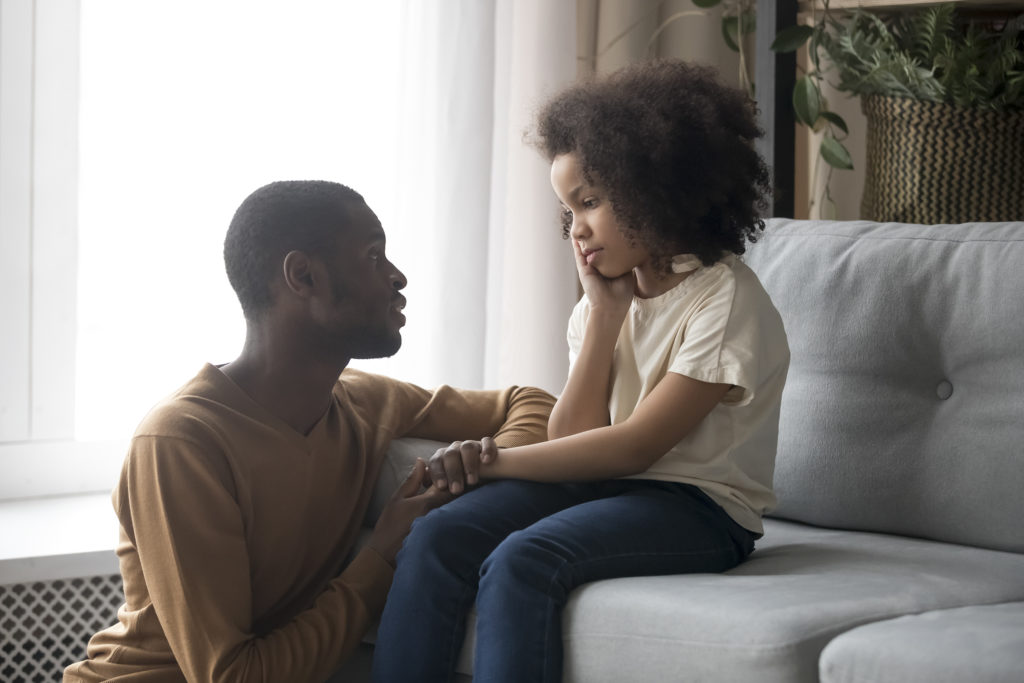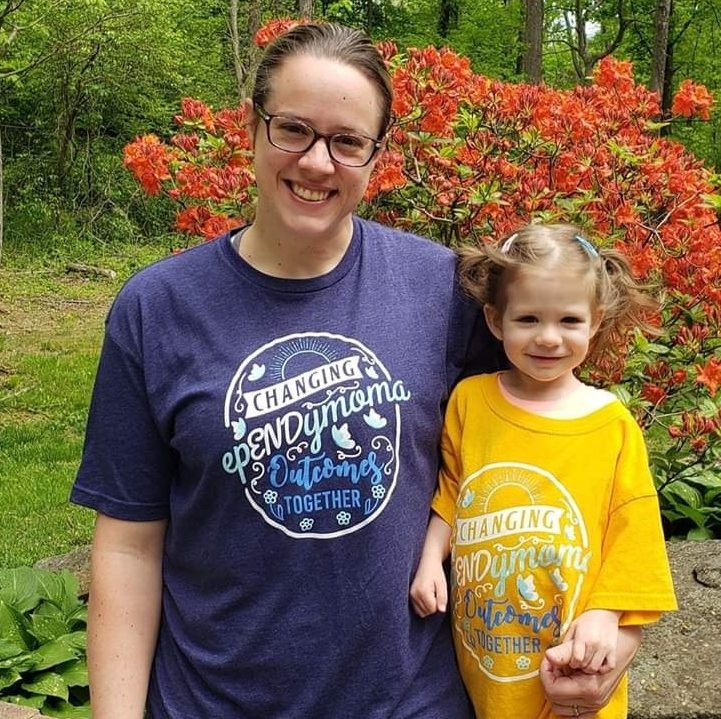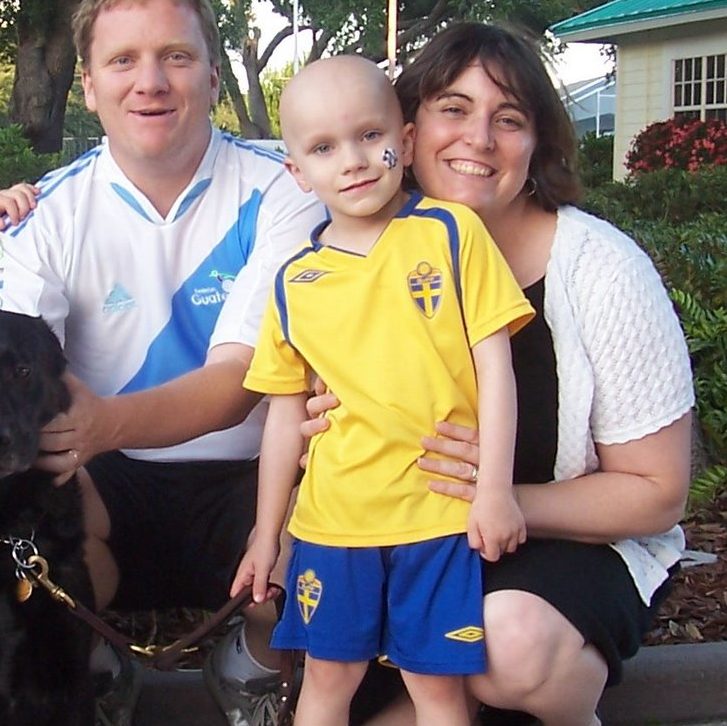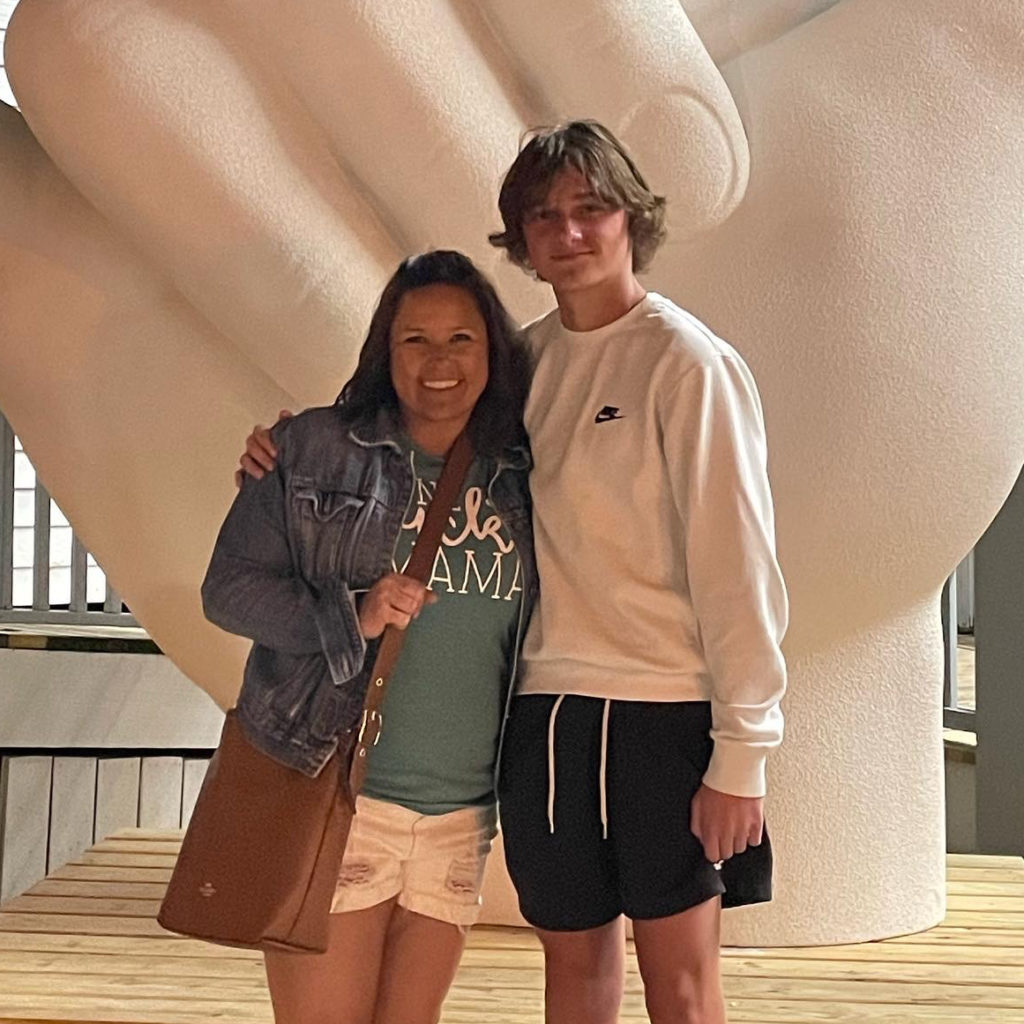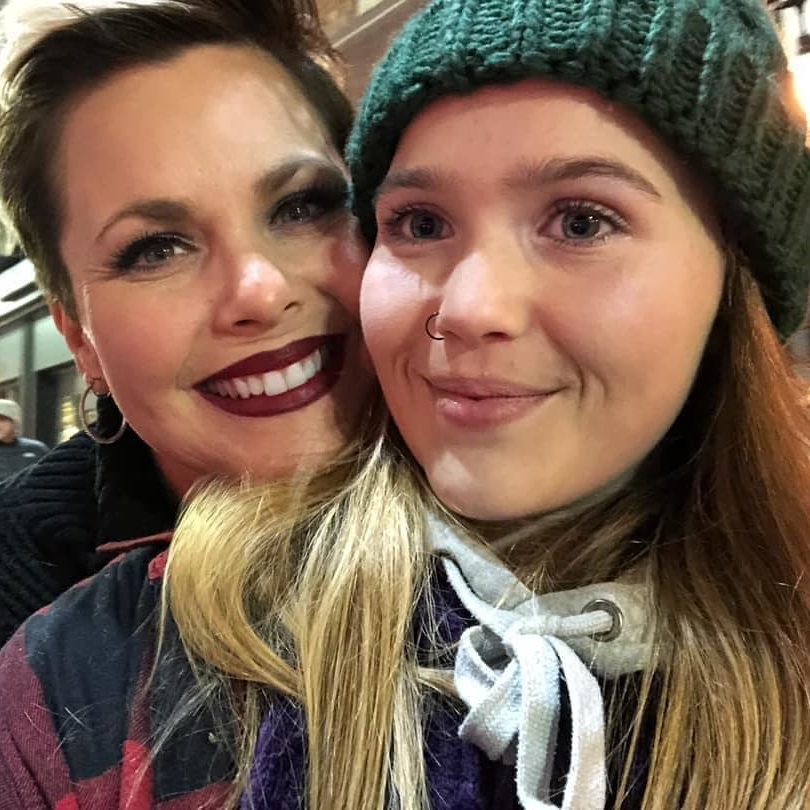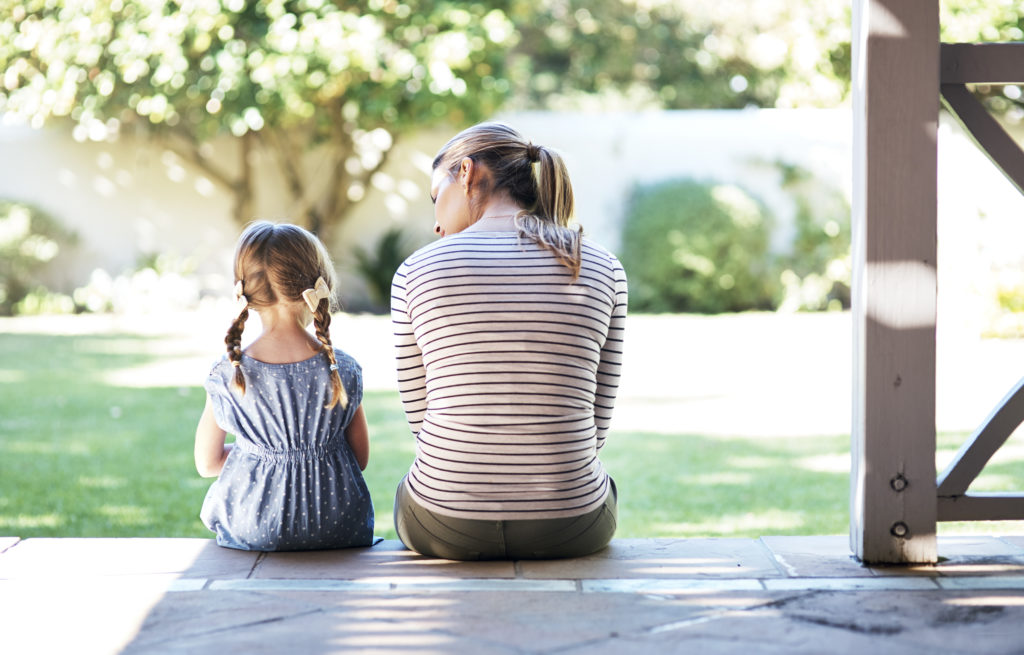“Your child has a brain tumor.” It’s a phrase no parent wants to hear, yet more than 3,420 families will receive the news in 2024 alone.
This Childhood Cancer Awareness Month, NBTS is sharing stories from families in the brain tumor community. NBTS asked four families, “When faced with a brain tumor diagnosis, how did you tell your child the news?” Their responses are shared below, along with additional resources on this important topic.
Hadley, 22 months old at diagnosis, anaplastic ependymoma
By Krista, Hadley’s mom
“Everything was very fast and abrupt. At 1 a.m., they came in and told me it was a brain tumor. We didn’t sleep that whole night. The next morning, she went in for a 4-hour MRI. We worded it like, ‘We need to take pictures of your head.’ She would complain of a ‘boo-boo head’ when she was young. As she got older, around four, we actually used the word ‘cancer.’ Does she understand what cancer is? No, but we try to use the right terms because it’s obviously what she hears, and kids are smarter than we think. We also talk a lot about it because we want to continue to raise awareness about pediatric cancer and pediatric brain tumors.
The hospital’s social worker helped us with how to tell her sibling. Her brother, Kyland, was five years old when she was diagnosed. We explained to him the best that we could that there was something in Hadley’s brain that shouldn’t be there, and the doctors had to remove it. He saw her for the first time after surgery with tubes coming out of her head, hooked up to IVs, and it was very scary for him. We would have to tell him, ‘Hadley doesn’t want to play right now because she is sick, or Hadley isn’t feeling well from the boo-boo in her head.’ We used really basic terms with him even at five. Like I said, kids are smart, and by then he knew what the word cancer meant. He didn’t know it how we know it and everything that could happen, but he knew generally what it was and that we did not want it there.
Thankfully, Hadley did not need chemo. If she had, we would have said, ‘The medicine is making her sick, but it’s going to make the boo-boo in her head not ever come back.’”
Mason, 3 years old (almost 4) at diagnosis, metastatic medulloblastoma
By Danielle, Mason’s mom
“His only original symptoms were four days of vomiting. Our lives changed dramatically that day of diagnosis. Mason, despite his age, wanted to know what was happening with his body. Even when we were talking with the doctors, and he seemed not to be paying attention, he would come back and ask questions later. Respect that children are listening and deserve to know what is happening to them in age-appropriate terms. These kids are smart and grow up so fast. Any control and power we give to them through knowledge and choice helps them.
Our sons were very close, and Mason worshiped his older brother Mateo. The first question Mateo asked when Mason was diagnosed was if Mason was going to die. We told him that we were going to do everything we could to help Mason, but, yes, he could die from this. Honesty was the best policy. When we did not know, we told him we did not know.”
Cole, 9 years old at diagnosis, pilocytic astrocytoma
By Shauna, Cole’s mom
“Our amazing oncologist said, ‘I’ve got really bad news. We found a mass.’ Cole came in while I was sitting waiting to call my husband, and he’s very intuitive. He could see on my face — even though I was trying so hard to smile and be brave — that something was wrong. And he said, ‘I’m really sick, huh, Mom?’ And I said, ‘Yeah, buddy, but we’re going to be okay.’ So they took us to the ER and ran a million tests.
I think we let the doctors share a lot with him — what they found, what the progress was, and how we were going to proceed. He was only eight when the symptoms started and nine when he was diagnosed. He’s a super smart kid. He could feel it, I think. He knew something was wrong. He just didn’t know what exactly. We shared with him the image of what they had found in the MRI. Then we talked to him about how the surgeons were going to take it out.”
Alicia, 13 years old at diagnosis, astrocytoma
By Candie, Alicia’s mom
“We didn’t know much. She had been going through testing for about a year before diagnosis. It took me a few days to process the diagnosis. I was a disaster. I had a thousand thoughts running through my mind. I think it was about three days before I told her. Our social worker was absolutely amazing as a resource. My advice to someone in that situation with a young teenager would be to get yourself together first and just talk to them. It’s a scary time for everyone, and keeping them in the dark will make it even scarier.”
Additional Resources
- Alex’s Lemonade Stand: Telling Your Child (an excerpt from their Childhood Brain and Spinal Cord Tumors guide)
- American Society of Clinical Oncology (ASCO): How a Child Understands Cancer
- National Cancer Institute (NIH): Children with Cancer: A Guide for Parents
- Parker’s Brain Storm: A child-friendly story describing the process of diagnosis and surgery from the prospective of a little bear named Parker. In this colorful, 16-page book, Parker Bear is not feeling very well and his Mom brings him to see a special doctor to find out what is causing little Parker to feel ill and to help him feel better. You can request a free copy in both English and Spanish.
- St. Jude Children’s Research Hospital: Talking to Your Child About Cancer



